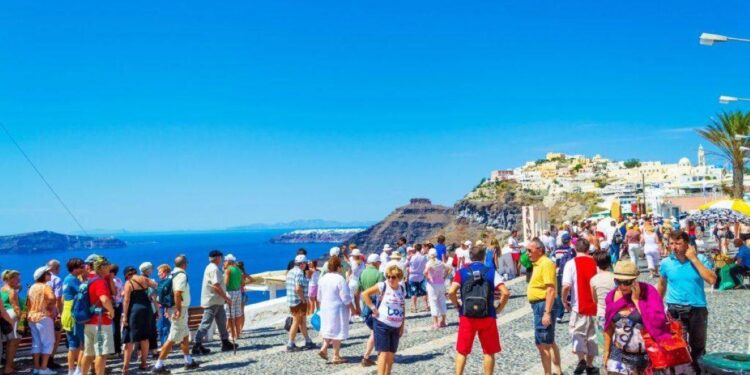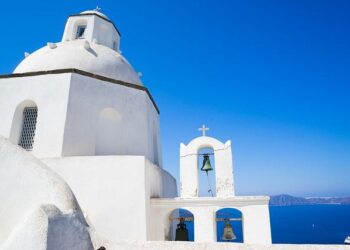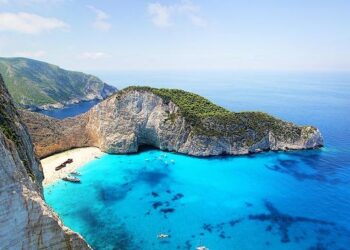Tourist spending in Greece has surged dramatically in the first months of 2025, signaling a robust rebound for the country’s vital travel sector. According to recent data released by Greek authorities, visitor expenditures have increased sharply compared to the same period last year, driven by strong demand from both European and international tourists. This upward trend underscores Greece’s growing appeal as a premier destination and offers a promising outlook for the nation’s economy as it continues to recover from the disruptions of recent years.
Tourist Spending in Greece Surges as Early 2025 Shows Promising Economic Boost
Greece has witnessed a remarkable upswing in tourist spending during the first quarter of 2025, signaling a strong start for the country’s economic recovery. According to recent data from the Hellenic Statistical Authority, expenditures by visitors surged by over 18% compared to the same period last year, fueling confidence among businesses and policymakers alike. Major urban centers such as Athens and Thessaloniki, alongside popular island destinations, have all contributed to this upward trend, showcasing increased visitor demand across accommodation, dining, and cultural attractions.
Key factors driving this boost include:
- Expanded flight connectivity with new routes opening in key European markets
- Competitive pricing from local hotels and tour operators
- Enhanced digital marketing campaigns targeting emerging travel demographics
| Region | Spending Growth Q1 2025 | Top Contributing Sector |
|---|---|---|
| Athens | +21% | Accommodation |
| Crete | +17% | Food & Beverage |
| Mykonos | +20% | Leisure & Entertainment |
| Rhodes | +15% | Shopping |
Luxury Travel and Cultural Attractions Drive Increased Visitor Expenditure
The rise in tourist expenditure in Greece during early 2025 is strongly influenced by the growing influx of luxury travelers and culturally motivated visitors. High-end resorts, boutique hotels, and exclusive island retreats have reported a significant uptick in bookings, reflecting a preference for premium experiences. Visitors are increasingly investing in gourmet dining, private tours, and bespoke wellness offerings, elevating the average spend per capita. This shift towards luxury consumption is reshaping the tourism economy, with luxury brands and service providers expanding their footprint across key destinations such as Santorini, Mykonos, and Athens.
Cultural attractions are also playing a pivotal role in boosting visitor expenditure. Greece’s rich history and archeological sites are attracting tourists willing to pay for immersive experiences, guided storytelling, and exclusive access to heritage landmarks. The government’s investment in preserving and promoting museums and cultural festivals has further enhanced Greece’s appeal as a cultural hotspot. Key areas of spending include:
- Tickets to museums and ancient sites with enhanced visitor services
- Cultural workshops and local crafts contributing to authentic engagement
- Seasonal festivals and performances attracting premium attendees
- Luxury transport options bridging island hopping and cultural tours
| Category | Spending Increase (%) | Key Regions |
|---|---|---|
| Luxury Accommodation | 28% | Santorini, Mykonos |
| Cultural Experiences | 22% | Athens, Delphi, Crete |
| Gourmet & Dining | 19% | Corfu, Rhodes |
| Private Transport & Tours | 25% | All Key Islands |
Experts Advise Investing in Infrastructure and Sustainable Tourism to Maintain Growth
Industry leaders emphasize the critical need for Greece to channel investments into modern infrastructure to sustain the recent surge in tourism revenue. Improved transportation networks, including expanded airport capacities and upgraded roadways, are seen as vital to accommodate the growing influx of visitors while minimizing congestion and enhancing travel experiences. Additionally, experts highlight the importance of adopting eco-friendly initiatives, urging stakeholders to prioritize renewable energy sources and waste management systems within tourist hotspots.
Sustainable tourism development is also a key focus, with authorities encouraging the promotion of lesser-known regions to disperse tourist traffic and reduce strain on popular destinations. Below is a snapshot of priority areas recommended by analysts for investment over the next five years:
- Green Energy Projects: Solar parks and wind farms supporting hotel operations
- Smart Mobility: Electric public transport and bike-sharing schemes in urban hubs
- Heritage Conservation: Restoration of historical sites enhancing cultural tourism
- Digital Infrastructure: High-speed internet access for remote areas to boost remote tourism
| Investment Sector | Expected Impact | Timeframe |
|---|---|---|
| Transport Upgrades | 20% reduction in travel delays | 2025-2027 |
| Renewable Energy | 30% drop in carbon emissions | 2025-2030 |
| Digital Expansion | 50% increase in online bookings | 2025-2026 |
| Cultural Site Restoration | 40% rise in cultural visits | 2025-2028 |
Insights and Conclusions
As Greece continues to attract a growing number of visitors, the marked increase in tourist spending in early 2025 signals a robust recovery for the country’s travel and hospitality sectors. Industry experts remain cautiously optimistic, emphasizing the need for sustainable development to maintain this upward trajectory. With tourism serving as a vital pillar of Greece’s economy, the coming months will be closely watched to assess whether this positive momentum can be sustained throughout the year.
















